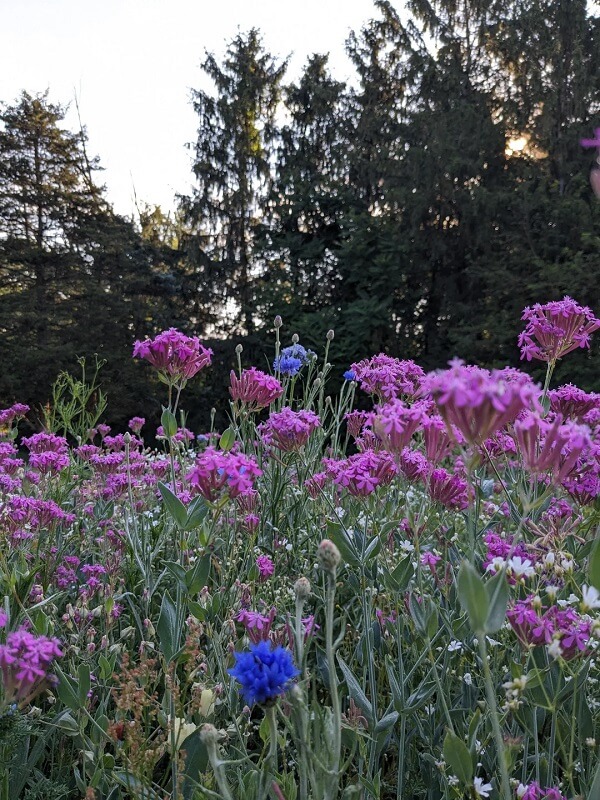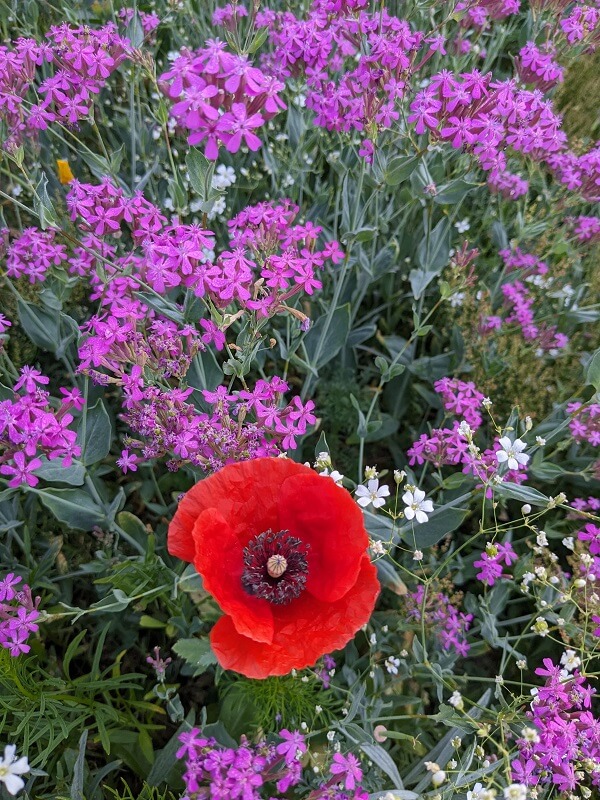Planting an all-native pollinator garden is a great idea … as long as your seeds are actually native plants.
One Redditor found this out the hard way. They posted photos of their first attempt at a pollinator garden. They show a variety of wildflowers in a multitude of colors. They noted that their wife was hesitant but now wishes it was bigger and said they're "looking to plant a whole acre of native wildflowers next year!"


It didn't take long before others pointed out that they had made a key mistake, though. Apparently, they bought wildflower mix at a local home improvement store and didn't check to see what seeds it contained before planting them. As it turned out, the bag must have contained seeds for verbena, which is not native to the area and can become invasive.
"Looks like mock verbena so I would watch it for expansion," one user said.
Planting a truly native garden or converting your lawn to native grasses has a ton of benefits, per the Department of Agriculture. You'll use fewer pesticides and herbicides to keep it looking good. These plants also need less water and may grow deeper into the soil, preventing erosion. You won't have to mow them as much, so they make for less work and reduce pollution, as well.
Making your yard pollinator-friendly is great, too. Not only do native plants provide these crucial animals with places to live or hide, but they also offer food and water, as well, the Fish and Wildlife Serves notes. This gives them the nourishment they need to do the important work that results in a sustained food supply for all of us.
In order to make sure you're actually planting native species, you'll probably need to do some homework. "Some companies sell 'native wildflower' mixes that are chock full of non-native wildflowers," one commenter on the post noted.
Instead of going the prepackaged route, someone suggested, "Might wanna stay away from mixes and research some individual species for your own mix." Note that some native plants may look like weeds, at least at first, so researching what they look like throughout their lifespan is critical.
In the end, we are all learning as we go. "Your wife is very lucky to have you be so impassioned about doing a pollinator garden," one commenter said. Here's hoping that next time the original poster will be more successful in finding native plants for their local pollinators.
Join our free newsletter for easy tips to save more, waste less, and help yourself while helping the planet.









